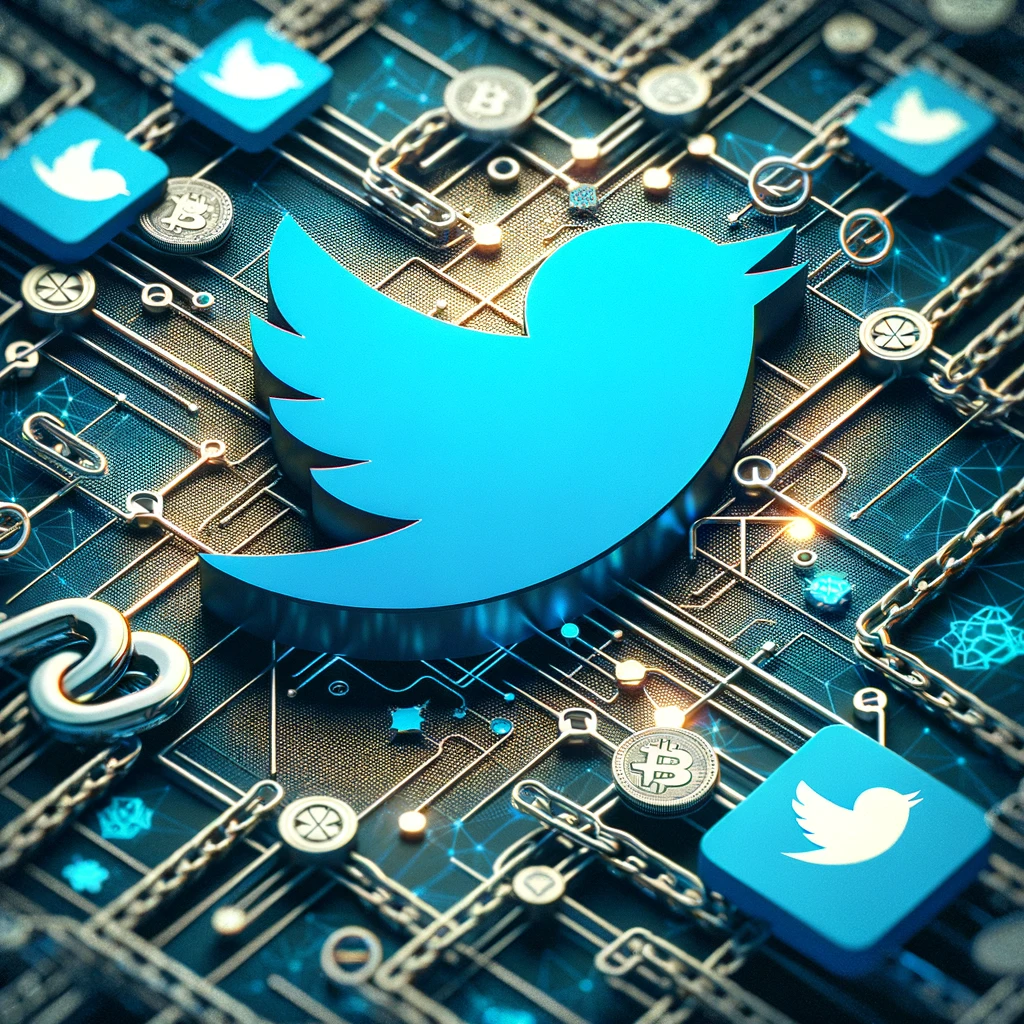Blockchain technology, primarily known for its use in cryptocurrencies, is finding innovative applications in various fields, including social media. Integrating blockchain into Twitter promises to revolutionize the platform, offering improvements in security, authenticity, and new forms of interaction. This article delves into the possibilities and benefits of this technological fusion.

One of the biggest promises of integrating blockchain with Twitter is the increase in security and authenticity. Blockchain can help verify user identities and combat fake accounts and bots, thanks to its decentralized and immutable nature. This could result in a more trustworthy and transparent platform.
Blockchain opens new avenues for monetization on Twitter. Users could receive cryptocurrencies as rewards for quality content or active participation, transforming how content creators and followers interact and value tweets.
With blockchain, each tweet could be recorded immutably, allowing for transparent tracking of modifications and deletions. This not only increases transparency but also adds an extra layer of accountability for shared information.
Integrating blockchain with Twitter could be a step towards the decentralization of social media. This means less control by central entities over information and more power in the hands of users regarding the management of their data and privacy.
Blockchain enables the implementation of smart contracts on Twitter, which could facilitate automated agreements and direct transactions between users, opening possibilities for e-commerce, advertising, and other collaborative initiatives on the platform.
Adopting blockchain on Twitter could also significantly impact the platform's governance. Decision-making processes and platform policies could become more transparent and democratic, with the possibility for users to participate directly through blockchain-based mechanisms.
While the possibilities are exciting, integrating blockchain into Twitter comes with its own set of challenges. Issues related to scalability, interoperability, and legal regulation are critical aspects to consider. Additionally, widespread adoption of these technologies will require a cultural shift and a greater understanding of blockchain by the general public.
The integration of blockchain with Twitter is an exciting prospect that offers improvements in security, authenticity, and new forms of interaction and monetization. As this technology continues to evolve, it could play a crucial role in how we use and perceive social media in the future. However, the inherent challenges of this integration should not be underestimated and will require innovative and collaborative solutions.